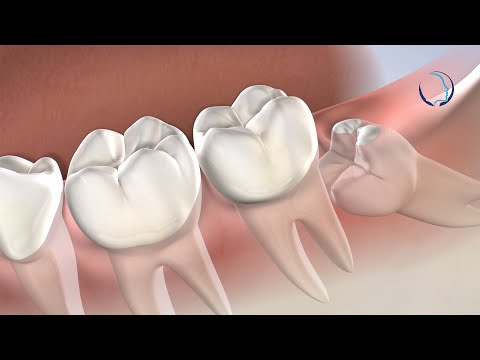Wisdom teeth removal is so common, it could almost be called a rite of passage. Most people get their wisdom teeth at some point in their teens. Because the jaw is too small to accommodate these final molars, dentists and oral surgeons often recommend removing the wisdom teeth early, avoiding potential health complications.
At Premier Center for Oral, Dental Implants & Facial Surgery, we have considerable experience removing wisdom teeth, always emphasizing the comfort and safety of our patients. Based in Massachusetts, our board-certified oral & maxillofacial surgeons are pleased to provide this treatment for patients in Acton, Ayer, Chelmsford, Fitchburg, Groton, Leominster, Pepperell, Shirley, Townsend, Westford.
What Are Wisdom Teeth?
The wisdom teeth, also known as third molars, are the last teeth to emerge. Most people get their wisdom teeth at some point between the ages of 15 and 21. The problem with wisdom teeth is that there typically is not enough room for them in the jaws. This can cause the wisdom teeth to become impacted, which means that they remain partially or completely trapped under the gum or bone tissue, rather than emerging as normal. Impaction can bring its own set of complications, including crowding and spacing problems, damage to healthy teeth, chronic pain, and an increased risk for infection and pathology.
The best way to avoid these problems is simply to have the wisdom teeth removed prophylactically before any problems begin to arise. For this reason, most dentists recommend having the wisdom teeth taken out as soon as it is possible to do so.
Why Get Your Wisdom Teeth Removed?
A Walkthrough of Our Process
Wisdom teeth removal is a very commonplace procedure, and our surgeons use meticulous surgical techniques and best-in-class technologies to ensure your comfort, safety, and convenience from the beginning of the process through your entire recovery.
Initial Consultation & Surgical Preparation
Your wisdom teeth removal journey will begin with a consultation. During the consultation, your surgeon will collect radiographic images, ask you some questions about your medical history, and perform a physical examination of your head, neck, and oral cavity. Based on this information, your surgeon will discuss your anesthesia options, including IV sedation and general anesthesia, and will develop a treatment plan to remove your wisdom teeth.
The Day of Surgery
For your wisdom teeth removal, you will be placed under IV sedation, minimizing any risk of physical discomfort or recollection of the surgical procedure. We administer medications through an IV, and once you are asleep, the surgery generally lasts for about 30-45 minutes.
Following the procedure, you may feel drowsy from the effects of the anesthesia. For this reason, it is mandatory that you have someone with you to drive you home once you are discharged.
Do You Have Questions For Us?
Recovery and Aftercare
Following wisdom teeth removal, you will need to give your body a few days to rest and heal. While recovery time can vary from patient to patient, most people feel back to normal after about a week and are able to resume normal activity the following day after surgery. Swelling usually peaks around the third day and can be managed with ice. Some physical discomfort can be expected and is usually manageable with a combination of Ibuprofen and Acetaminophen.
As you recover, take it easy, avoid strenuous physical exertion, and stick to soft foods and liquids for about a week. After two weeks, you will have a follow-up appointment to ensure you are fully healed.
During your wisdom teeth recovery, our surgeons are reachable around the clock. If any questions or concerns arise, you can call or text freely.
Read Our Reviews
Rely on Us for Wisdom Teeth Removal
Having your wisdom teeth removed can ultimately save you a number of oral health complications down the road, and the procedure itself is safe, routine, and predictable.
At Premier Center for Oral, Dental Implants & Facial Surgery, we provide wisdom teeth removal for patients throughout Massachusetts under IV sedation and general anesthesia. To schedule a consultation, call our office at (978) 708-0080.









